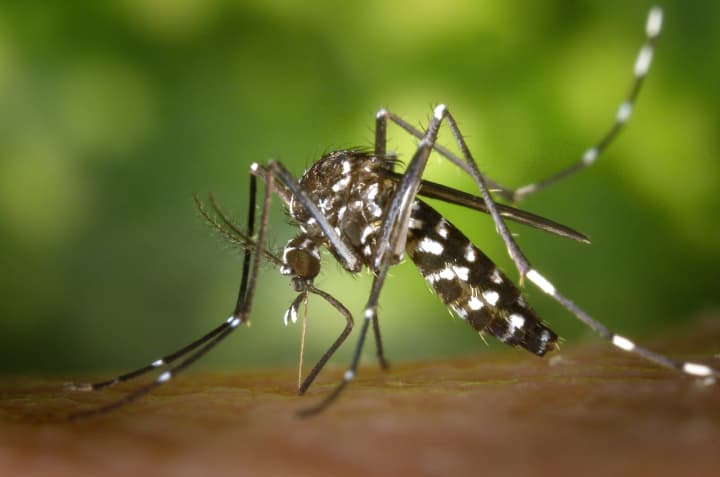The New York State Department of Health informed county health officials this week that a mosquito tested positive for Eastern Equine Encephalitis (EEE) virus. The mosquito was collected on Wednesday, July 31 in Manorville.
According to officials, the potential of EEE in a mosquito sample poses a potential health risk.
“Eastern equine encephalitis is a rare but potentially deadly illness for humans. The disease is also a concern for horses, though a vaccine is available and recommended for horses. Both EEE and West Nile virus are transmitted by the bite of an infected mosquito.”
In the United States, an average of seven cases of EEE is reported each year. In New York, there were eight reported cases of EEE between 2009 and 2018.
To date, there have been no cases of EEE reported in Suffolk County. Four EEE positive mosquitoes were reported in Suffolk County in 2017.
In severe cases of EEE, a person could experience swelling of the brain that could result in death. Approximately 33 percent of those who contract EEE die, and there is no human vaccine.
Health officials noted that horses are particularly vulnerable if they contract EEE.
The equine mortality rate due to EEE ranges from 75 to 90 percent. In 2018, the USDA reported 107 cases of EEE in horses from 13 states, including three from upstate New York. Suffolk County reported three cases of EEE in horses in 2003.
“The reason EEE is less common in humans is that the primary mosquito vector, Culiseta melanura, does not typically feed on humans,” Suffolk County Commissioner of Health Services James Tomarken said. “However, the virus may be transmitted to humans and horses by bridge vectors, which are other kinds of mosquitoes that have contracted the virus by feeding on infected birds.”
According to the Suffolk County Department of Health, individuals, especially those aged 50 or over, or those with compromised immune systems, are urged to take precautions to avoid being bitten by mosquitoes. To avoid mosquito bites, residents are advised to:
- Minimize outdoor activities between dusk and dawn.
- Wear shoes and socks, long pants and long-sleeved shirts when mosquitoes are active.
- Use mosquito repellent, following label directions carefully.
- Make sure all windows and doors have screens, and that all screens are in good repair.
- Keep mosquitoes from laying eggs inside and outside of your home. Once a week, empty and scrub, turn over, cover, or throw out containers that hold water, such as vases, pet water bowls, flowerpot saucers, discarded tires, buckets, pool covers, birdbaths, trash cans, and rain barrels.
Click here to follow Daily Voice Suffolk and receive free news updates.


